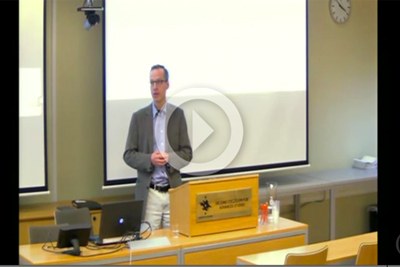Intercontinental Academia Conference Proposes Philosophical Reflection on Time and Eternity
 In a videoconference of the Intercontinental Academia (ICA) held on the April 20, Sami Pihlström, professor of Philosophy of Religion at the University of Helsinki (Finland) addressed the notions of time and eternity from a philosophical perspective.
In a videoconference of the Intercontinental Academia (ICA) held on the April 20, Sami Pihlström, professor of Philosophy of Religion at the University of Helsinki (Finland) addressed the notions of time and eternity from a philosophical perspective.
Pihlström, who is also director of the Helsinki Collegium for Advanced Studies, dedicated his exposition more to raising topics for reflection by ICA participants than to providing answers. He began his lecture by raising two central philosophical problems about the metaphysics of time and of temporality: “What is time? Is time fundamentally real or is it just a way for man to categorize reality?”
According to him, these questions lead to two major concepts of time: that of Realism, which sees time as “a basic feature of the space-time universe,” endowed with objective truth; and that Transcendental Idealism (developed by German philosopher Immanuel Kant), according to which time is a subjective construction of human cognitive faculties, derived from intuition.
These concepts, in turn, bring up the clash Realism vs. Anti-Realism regarding the existence of “objective and independent truth values of the mind” underlying historical statements. In Pihlström’s assessment, these two philosophic currents take opposite positions: while the former states that the past is objectively determined, the latter denies the existence of objective reality in any temporal dimension.
ETERNITY
Related materialRelated new: The Relationship between Consciousness of Self and Perception of Time |
|---|
The second part of Pihlström exposition was devoted to reflecting on the scientific and philosophical relevance and coherence of the concept of eternity. “Is there or can there be something that is eternal?”, he asked.
He observed that ancient philosophers like Plato and Aristotle held that the natural world has an eternal existence; Judeo-Christian monotheism, on the other hand, believes that the world as we know it has a beginning (the time of creation) and an end (the time of apocalypse).
However, although believing in the finitude of the world, Pihlström said, Judaism, Christianity and other religions also believe in eternal life, seen “as an endless continuation of corporeal or incorporeal existence, probably in very different form than that of earthly existence.”
For him, the idea of eternal life refers us to what English philosopher Bernard Williams called the “tedium of immortality” – a state of profound dejection when faced with the infinity of time. This is because immortal beings, unencumbered by time constraints, could do anything at any time, which would lead them to postpone any action indefinitely. “There would be no motivation for anything,” he emphasized.
TIMELESSNESS
On the other hand, stressed Pihlström, the concept of eternity can be interpreted not as immortal existence in infinite time, but as timelessness. In his view, “life itself can be seen as a subspecies of eternity, even if one does not believe in any kind of infinite extension of temporal existence.”
He argued that, in this case, eternal life would amount to living the present moment, as proposed by the Austrian philosopher Ludwig Wittgenstein in his Tractatus Logico-Philosophicus. Unfortunately, this idea can be easily trivialized in self-help literature and popular culture,” he added.
Referring to the philosophy of religion inspired by Wittgenstein’s ideas, of which British philosopher Dewi Zephaniah Phillips is the leading exponent, Pihlström said religious, and particularly Christian, concern with the question of immortality/eternity begins with a radical affirmation of one’s finitude and of human immortality. “Only by waiving the quest for the infinite continuity of life can one adopt the perspective of eternity that a proper ethics for life requires,” he concluded.
